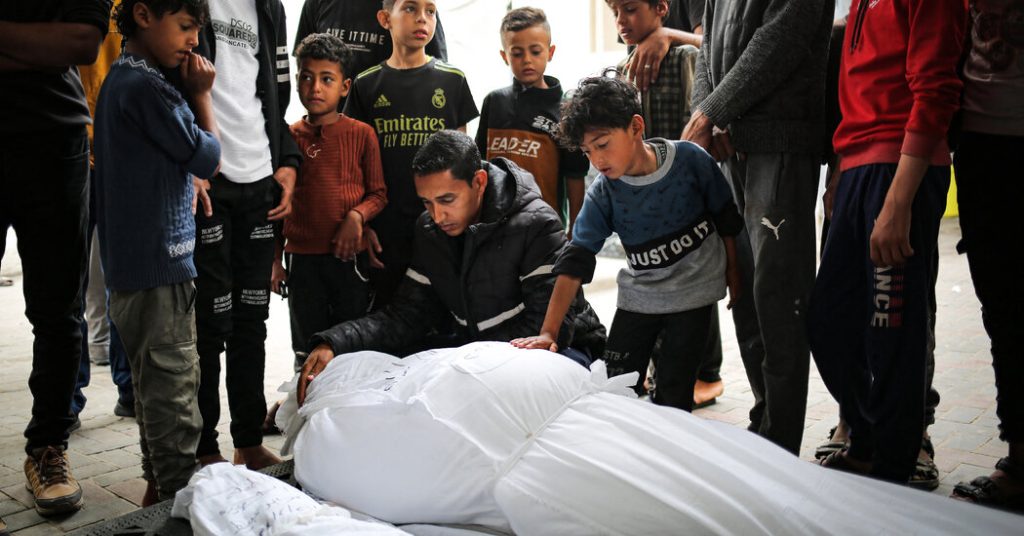Hamas is reviewing a new Israeli proposal for a cease-fire in the Gaza Strip, amidst efforts to break a deadlock in talks between the armed group and Israel. The potential for an Israeli invasion of Rafah, a city in southern Gaza, where more than a million people have been displaced, has raised concerns among humanitarian groups due to the catastrophic consequences it could have for civilians. Khalil al-Hayya, a senior Hamas official, stated that the group had received the Israeli response to a proposal delivered to Egyptian and Qatari mediators two weeks prior, but did not provide specifics, saying Hamas would respond after studying it further.
Efforts to advance negotiations have been made, with a delegation of Egyptian officials visiting Israel in an attempt to progress talks between Israel and Hamas. Despite ongoing disputes over issues such as Israeli withdrawal of forces and the duration of a ceasefire, Hamas has insisted on a permanent halt to hostilities, while Israel has shown openness to a temporary pause. Disagreements also remain regarding the return of displaced Palestinians to the north, with Hamas advocating for mass returns and Israel seeking to impose limitations on who, where, and how individuals can return.
The impasse in negotiations has resulted in continued suffering for Palestinians in Gaza, with Israel’s intense bombing campaign causing widespread destruction and a high death toll. The Gaza health ministry reported over 34,000 casualties, without distinguishing between combatants and civilians. Additionally, Israeli hostages have not been able to reunite with their families, leading to increased criticism of the government’s handling of the situation. Calls for cease-fire talks have intensified as Israel hints at a potential invasion of Rafah, with plans to expand a designated “humanitarian zone” if such an operation were to take place.
An Israeli military official mentioned the possibility of an invasion of Rafah this week, stating that an expansion of a humanitarian zone would include more civilians in the event of a major ground offensive. Associated concerns have prompted the United States to caution Israel against pursuing a large-scale military operation in Rafah. Despite Israel’s assertion that entering Rafah is necessary to combat Hamas battalions, allies have expressed serious apprehensions about the impact on residents, many of whom are currently living in overcrowded conditions in makeshift shelters.
Secretary of State Antony J. Blinken is anticipated to visit Israel in the upcoming week, with the United States advocating against a significant military action in Rafah. The delicate situation in Gaza underscores the urgent need for successful negotiations between Israel and Hamas to achieve a cease-fire and address key issues such as the return of displaced Palestinians and the release of hostages. The ongoing tensions and potential for further military escalation highlight the importance of diplomatic efforts to de-escalate the situation and protect the civilian population in Gaza.


